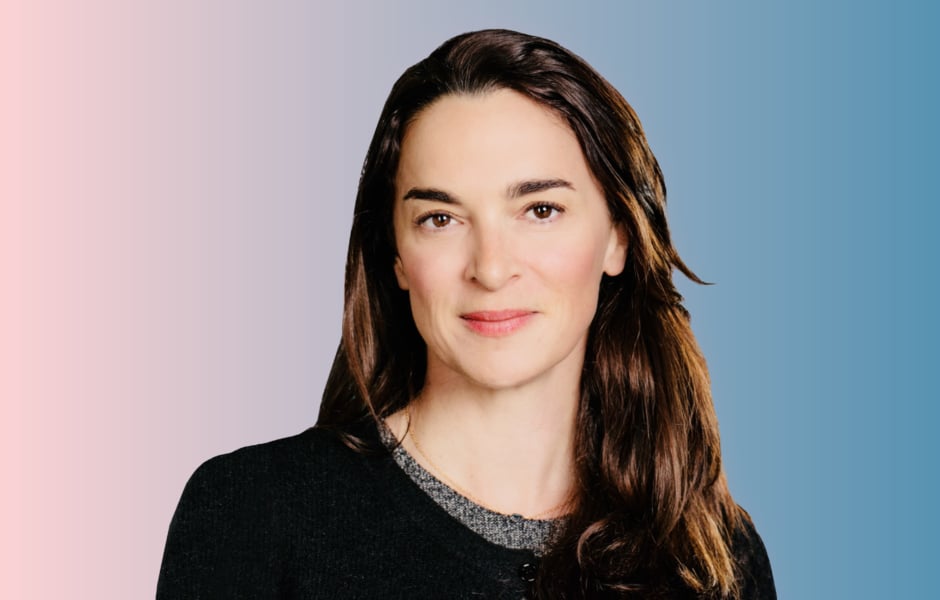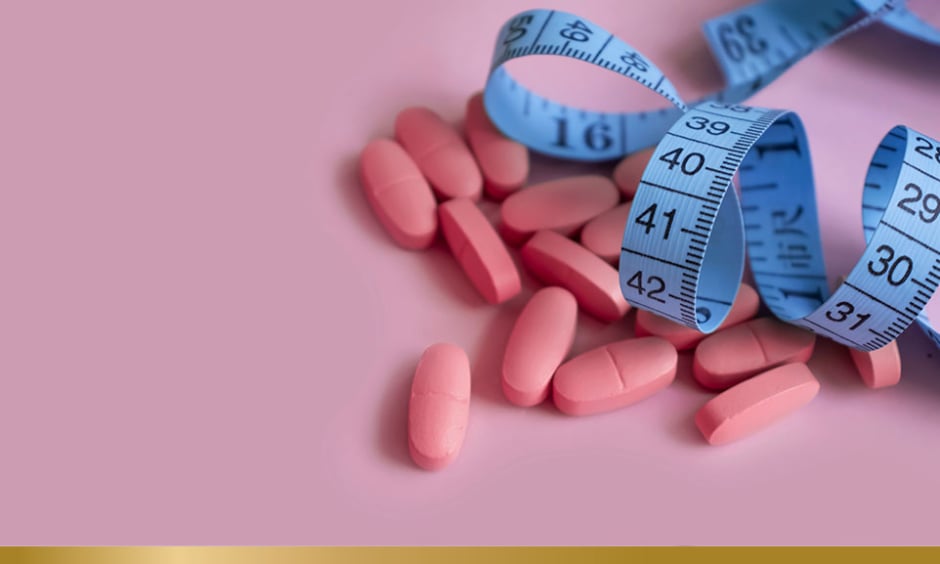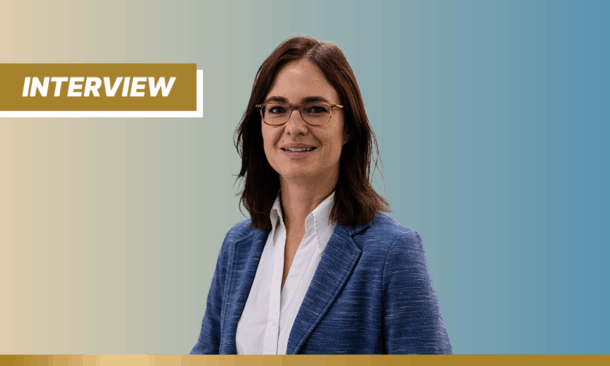In our latest Catalyst interview, hear from Emma Charles, Senior Vice President of European Markets, Bristol Myers Squibb, as she reveals her hopes for the future of healthcare
Interview by Isabel O’Brien
Emma Charles is the Senior Vice President of European Markets at Bristol Myers Squibb, overseeing operations across 19 countries. She previously led BMS’s Intercontinental Markets division, covering 63 countries including Asia, Latin America and the Middle East, and served as General Manager and Board Member of BMS Italy for over six years.
Earlier in her career, she held senior leadership roles at Pfizer, including Cluster Lead for Central Europe, Turkey & Israel, and Regional Lead for Rare Diseases and Neurosciences. She also held commercial leadership roles at Janssen in France and the US, and began her career in vaccines at Pasteur Merieux (now Sanofi Pasteur). She also holds a degree in Marketing & Finance from a leading French business school and lives in Paris with her family.
What first drew you to the pharmaceutical industry, and what is your favourite thing about working in the sector today?
I started my career in the pharmaceutical industry just after graduating from business school. My first role was in vaccines – I was sent to Southeast Asia to work on a paediatric vaccine for Pasteur Mérieux, which is now Sanofi Pasteur. What fascinated me was working on new combinations of paediatric vaccines, making sure that children could be vaccinated with just one shot, combining multiple vaccines into a single injection. It was incredible to see that work lead to the vaccination of babies and children across Southeast Asia.
A few years later, I moved further into the pharma industry. What continues to inspire me today is the advancement in science and the breakthroughs we see, particularly in oncology and haematology at Bristol Myers Squibb. There has been amazing progress in how we diagnose and treat patients, offering not only more hope, but longer survival – even for those facing very serious diseases. The R&D aspect and the progress of science are what keep me truly motivated.
What access to medicine challenges are there in Europe, and how might upcoming policy changes improve access in the region?
Access is definitely a key challenge in Europe – and globally. One of the toughest situations is the time it takes for patients to get access to medicines because of reimbursement. After approval of the EMA, each country has its own reimbursement schedule, which can lead to long delays for patients.
Recently, EFPIA published the patients WAIT indicator (Waiting to Access Innovative Medicines). This showed that there are early-access markets like Germany or Austria where the average wait for treatment reimbursement is around 100 to 130 days. But in other countries – particularly some of Eastern Europe like Romania – it can be over 800 days. Sometimes patients wait years for access to innovative medicines. This creates inequity and is something we must address.
There is hope that the new joint clinical assessment process at EMA level, through HTA regulation, could lead to faster and higher-quality assessments – ultimately reducing wait times. Ideally, wherever a patient lives they should be able to access innovative treatments in the same timeframe.
How can the pharmaceutical industry better ensure that new innovations actually reach all the patients who could benefit?
The objective is really to partner with healthcare systems so they recognise innovation not as a cost, but as an investment. Many treatments have completely transformed survival and patient outcomes. They bring benefits not just for the patient, but for society.
The pharmaceutical industry is one of the most dynamic research and development sectors in Europe. At Bristol Myers Squibb, most of our clinical trials outside of the US are based here. We’re committed to providing the scientific community with early access to innovation so they can generate clinical evidence and experience. At the same time, this enables patients to participate in clinical trials and potentially benefit earlier, even before EMA approval and local reimbursement.
Take melanoma, for instance. In the early 1990s, there were no treatments, and survival was often just six months. Today, thanks to immunotherapy and checkpoint inhibitors, we’re talking about ten-year survival data. Another example is multiple myeloma, a bone marrow cancer that was once impossible to treat. With consistent innovation over 20 years, patients now have longer survival and more treatment options, even in cases of relapse.
Healthcare systems must understand that this progress adds years of life and quality of life for patients in need – and should be viewed as an investment. That’s why we’re also focusing on real-world evidence to demonstrate continued value as the drug is used in the real-world setting.
Healthcare systems must understand that this progress adds years of life and quality of life for patients in need – and should be viewed as an investment
What role do you see AI and digital health playing in driving sustainable innovation and more equitable access across Europe?
AI is the next revolution – not just in pharmaceuticals, but across all sectors. In R&D, we’re seeing significant gains in speed and efficiency. AI helps us analyse data faster, use predictive algorithms and apply machine learning to identify patterns that might otherwise be missed. It helps accelerate both discovery and development of medicines.
Developing a treatment traditionally takes about many years. With AI, we’re working to shorten that timeline, improving both speed and accuracy.
On the healthcare system side, AI is transforming diagnosis and patient monitoring. Think of wearable tools and mobile apps. At Bristol Myers Squibb, we’ve explored digital tools that help diagnose lung cancer earlier using AI to analyse lung X-rays – potentially detecting tumours at a very early stage.
Beyond that, I see AI supporting greater collaboration across researchers, healthcare providers and policymakers by improving data-sharing. It’s just the start of the journey, but it’s incredibly motivating to see how quickly it is advancing.
You’ve led cross-market teams and championed gender equity through your work with HBA. What have been some of the most valuable lessons – and challenges – from your leadership journey so far?
Through the HBA network, I’ve seen the value of women sharing their experiences and being inspired by female leaders. One defining moment in my own career was being appointed General Manager of Bristol Myers Squibb Italy in 2016. It was a double first: I was the first woman in that role, and the first non-Italian GM. I didn’t speak the language, so it was a huge challenge, but I really wanted to show that I could lead the market, learn the language and integrate myself, and that’s what I did.
I spent six years in that role, and it remains one of my most precious experiences. I made it a priority to create a gender-balanced leadership team, with the hope that it would cascade throughout the organisation and the affiliates. We had some amazing results. We were recognised as one of the best places to work for women, and I’m very proud of that.
I also actively advocate for women to find their ambition and aspiration, both internally and externally. Women often hesitate to apply for a role if they feel they don’t meet every criterion. But one of my mentors once told me: “Just try – you’ll figure it out.” Even if you don’t get the job, the feedback you receive can help you grow.
I didn’t think I could do it, but with training and commitment, you can do anything
Outside of your professional role, what keeps you energised or inspired, especially when the work gets challenging?
First of all, I truly love my job. I gain so much energy from meeting people across the organisation, helping them solve challenges and recognising their work. I travel a lot, and that connection with the team is something I find incredibly energising.
But I also make sure to maintain work-life balance. I spend time with my family and daughter, travel and do a lot of outdoor sport, which helps me relax and recharge.
Last December, I discovered cycling, which was completely new to me. I signed up for Bristol Myers Squibb’s Continent 2 Continent 4 Cancer challenge – a three-day, 300km ride to raise funds for oncology and haematology patients. I didn’t think I could do it, but with training and commitment, you can do anything. It was a fantastic human and physical experience. Now I still cycle – not at that level, but enough to help me unwind when needed.









